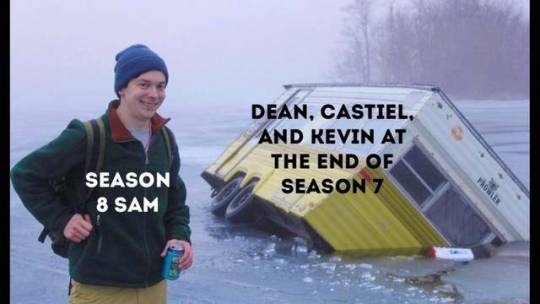Photo

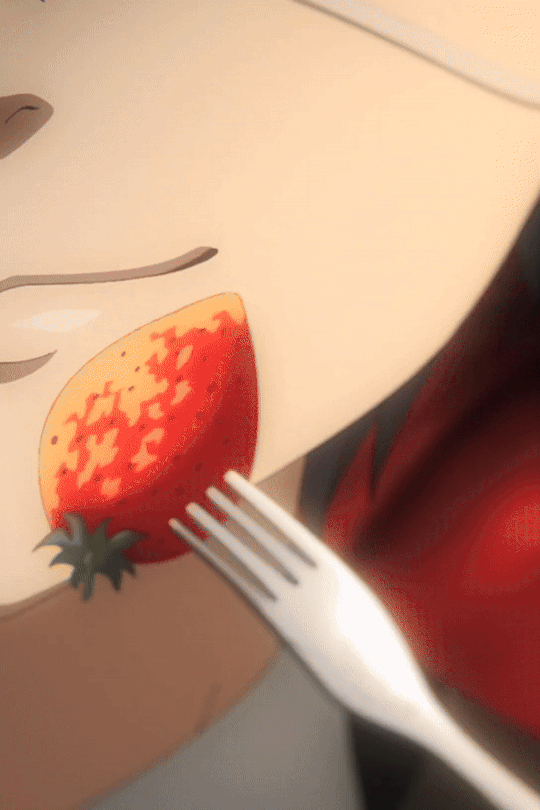
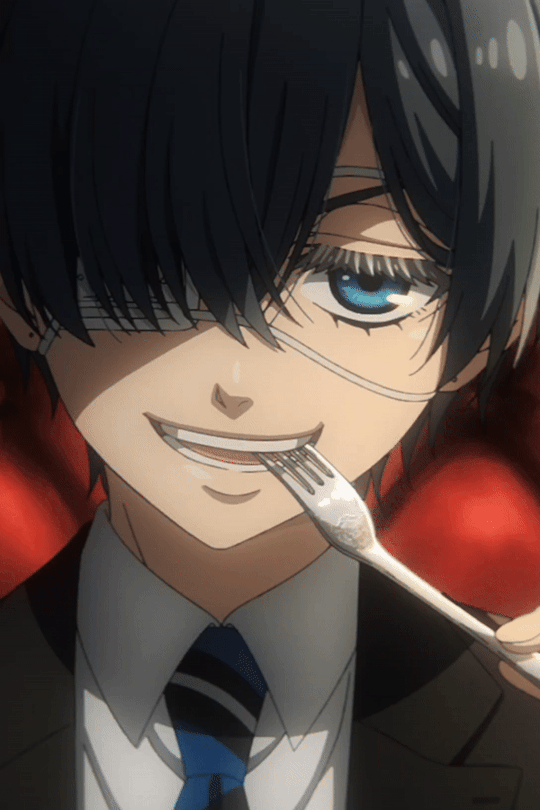
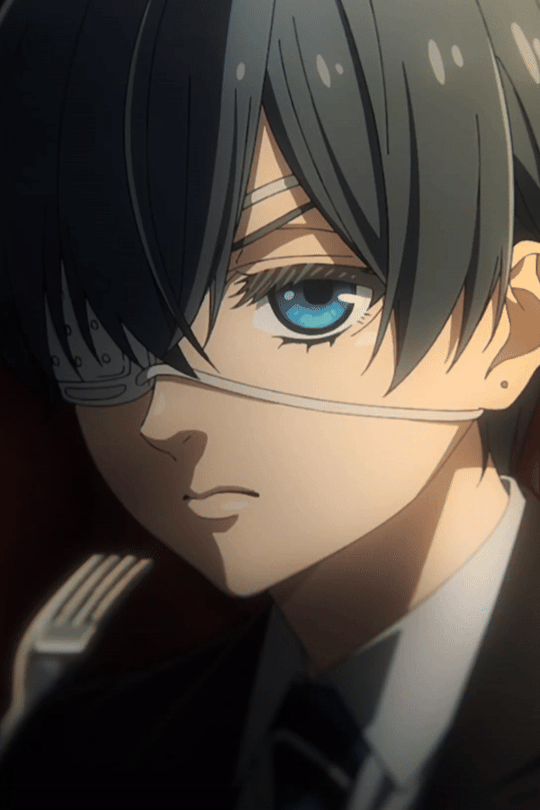
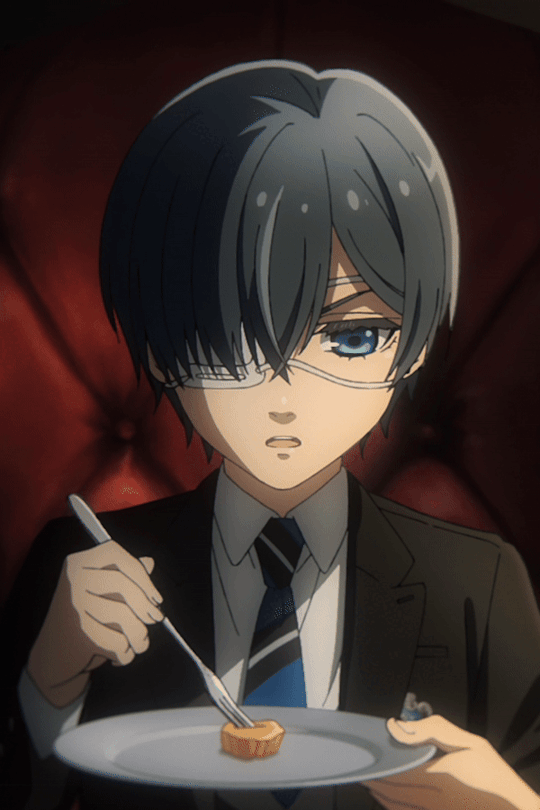
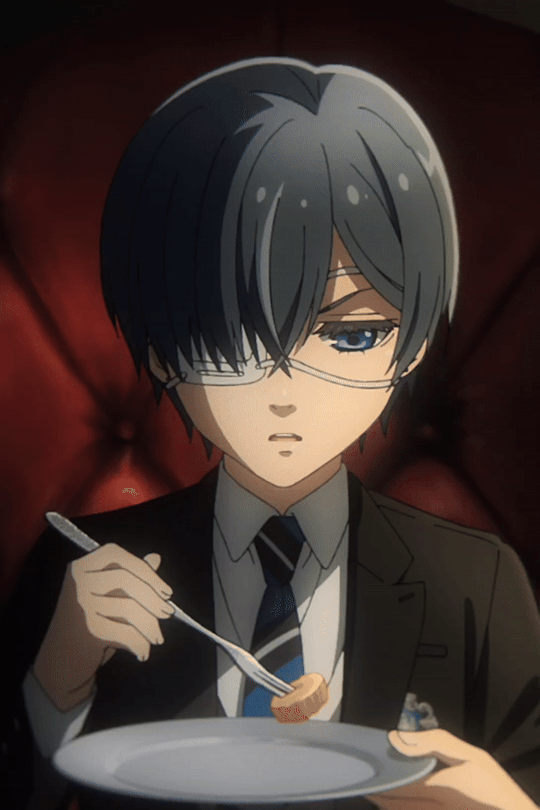
Kuroshitsuji S4 | Ep2 | Ciel Eating Strawberry Cake
369 notes
·
View notes
Text

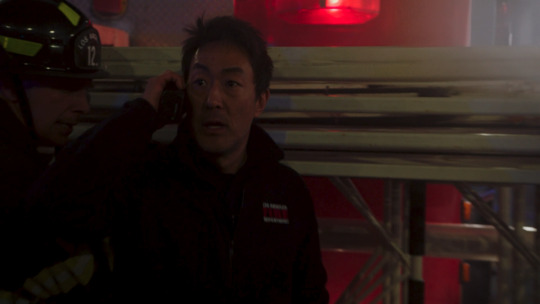

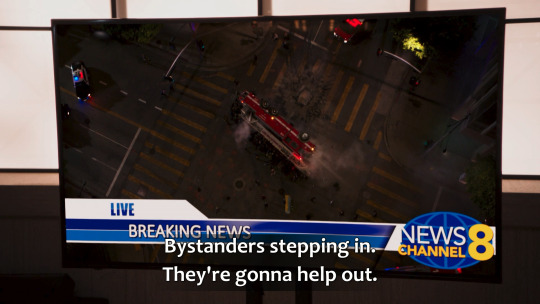
this scene will always get to me however many times i see it 🥺🥺🥺
183 notes
·
View notes
Text
They look so cool I'm going insane I need season 5 now!!!
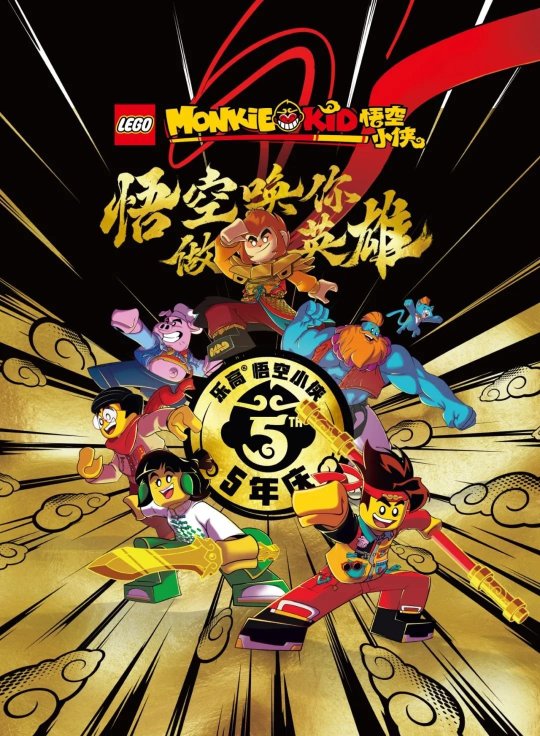
29 notes
·
View notes
Text


He just had to go for Style over Substance U_U
Episode 53 Part 16
First < Previous > Next
Season 1, Season 2, Season 3, Season 4, Season 5
Ep 41, Ep 42, Ep 43, Ep 44 Ep 45, Ep 46, Ep 47, Ep 48, Intermission, Ep 49, Ep 50, Ep 51, Ep 52
Ko-fi | Patreon
3K notes
·
View notes
Text
What Helck Does Right That BNHA Is Doing Wrong
I wrote this out in a spate of frustration a while back, lost it, and then was able to recover it again, so in the interest of conservation, I figure I might as well share. It contains massive spoilers for Helck—details of its ending, its overarching plot, deep world secrets, and so on—so read at your own risk if you're one of the few people following the anime. On the other hand, very few people do seem to be watching Helck, so if you watched the first episode and then dumped it for being too goofy and comedic, this write-up will definitely give you some context for where that story goes.
(More people should read/watch Helck. Please read this and then go read Helck.)
(If you prefer, you can also just skim the Helck bits until you get to me complaining about BNHA’s crappy endgame. Hit the jump, either way!)
Helck: What It Does
For my readers unfamiliar with the series (e.g. probably most of you), Helck’s elevator pitch is, “After the Hero defeats the Demon King, the demons hold a tournament to select the new Demon King. But wait, why is there a human here?!” It’s riffing, obviously, on the foundational JRPG story, and starts out in a high-key goofy comedy mode, which, while representative of its sense of humor, is not actually very reflective of the tonal zone it winds up occupying for most of its run. The darkness and horror elements of the series are foreshadowed by the title character—Helck, the human who showed up to join the Demon King selection tournament—cheerily proclaiming that he hates and wants to destroy all humans. Something is very wrong in the human lands, it seems, and the main character—Vamirio, one of the Four Heavenly Kings of the demon empire, sent to oversee the tournament—uncovering and then responding to that wrong forms the bulk of the story.
That said, it takes a good long while for Helck to reveal the true nature of its conflict. While there are some key villainous figures that have been in play for long before that point, the ultimate truth is that the world of Helck contains a disembodied force that contacts people when they’re in their darkest, most despairing moments, providing them an “answer” for why their situations are so miserable and how to go about fixing the world that hurt them so badly, as well as power to help them do so. The answer given by this force, called “The Will of the World,” is twisted and omnicidal, but between a degree of implied mental influence and the timing of the approach, lots of otherwise innocent, hurt people can wind up becoming the figures behind literally world-threatening dangers.
Eventually, we find out that Helck himself was approached by The Will when he was a child in a bad situation. He wasn’t quite ready to give in yet—he had a kid brother to look out for—and so he powered past it, but it’s remained in the back of his head since that day, ever-ready to whisper its apocalyptic solutions to extreme class disparity and abuse. This gives him a degree of empathy for the villains of the series, even as they do extremely awful stuff that he can’t otherwise forgive.
In the epilogue, a new king is crowned and we’re generally assured that things in Helck’s country are going to improve from now on. The demons are developing magical treatment to reverse a once-thought-irreversible transformation from sentient person into mindless monster, preparing groups that will venture forth to find all the affected humans still wandering the countryside so that they can be helped. Helck himself could easily rest on his laurels, either settling in with the human friends he had to go to extreme lengths to save or accepting his demon friends’ invitation to come live with them, the ones who fought at his side and gave him hope when he was so often on the verge of despair.
But he does neither, because he knows that The Will of the World is still out there whispering to other people in pain—it’s a force of nature that will always be out there, until someday it succeeds at finding someone it can use to overturn and restart the world. It can never be killed, only circumvented. However, The Will can’t act on its own, only through those that have fallen under its sway, and those people don’t start out as raving, gleefully evil maniacs! They start out as people experiencing unconscionable suffering, because people suffering to that extent are the only ones who can be convinced to believe that the answer is total annihilation.
Helck knows better than to assume that simply installing one good king in one overall-good country will be enough to save everyone in the world—or even in that one country!—from despair, and he’s intimately familiar with what that despair is like. So, he packs up with one of his besties and they set out on a journey that will, implicitly, never really have an end. Of course, he’ll come visit his friends and loved ones from time to time, but what he’s really dedicating himself to is finding and rescuing other people, other victims, giving them reasons to hope, reasons to believe in the world as it is now, because, as he himself experienced, that’s the only thing that can really stop someone from falling prey to The Will of the World.
Saving those victims is a practical means of preventing all the harm they would have gone on to wreak, yes, but it also means said victims don’t have to be put to the sword when they turn up at the head of an army of monsters or some shit a few decades down the line.
Helck’s answer to the problem of recurrent, inevitable suffering is thus threefold:
Improve the system at large by clearing out the corruption on top.
Dedicate active, ongoing efforts to redressing the sins of the previous system and helping its victims, even if they seem too far gone.
Proactively seek out and bring aid to problem areas before the sufferers there metastasize into world-shaking dangers.
Its characters are involved in all three of those stages—the heroic side cast does Point 1, Vamirio and her allies handle Point 2, and Helck takes up the responsibility of Point 3. He goes out into the world to be that extra safety net when the better society he helped put in place inevitably still fails people, in places where his allies can’t reach. To find them—the people who are in such bad situations that apocalypse looks like a reasonable solution—he’s going to have to wade, personally, into the deepest and worst mires he can find, pulling people out of that darkness one hand at a time.
As a series, then, Helck believes in systemic change while also believing that systemic change will never be sufficient on its own to prevent all suffering. However, rather than then simply shrugging and accepting that suffering is inevitable and so the heroes will have no choice but to deal violently with the people who fell through the cracks when they inevitably return as dangerous villains, it sends its hero out to do that ground-level work of saving people. And he himself isn’t enough either, but his actions are still meaningful, because every life he saves is both that one soul saved from darkness, and one more vector cut off that could otherwise spiral into exponential amounts of suffering and death.
BNHA: What It's Not Doing
We can see an echo of the path into darkness which turns victims into villains in BNHA, where the villains are not Born Monsters, but rather become monsters because of the circumstances of their lives. The pain they endure, the discrimination and violence they face, leads them to their extremist reactions to try and repair—or simply destroy—a world they perceive as fundamentally hostile to them. While there’s no overarching Will of the World manipulating them for its own ends—All For One is akin to it in how he operates, but at the end of the day, he’s still just another man, not a literal planetary anima—the end result remains the same: people forged by suffering into enemies so dangerous and resolute that they threaten the entire foundation of the world as it currently exists, as well as all those who are living in peace and happiness in the current world.
So, when faced with the prospect of enemies who are an unavoidable consequence of the endurance of the status quo (because the status quo the heroes have chosen to support is full of discrimination and repression), what exactly is BNHA proposing to do about those enemies arising in the future? How will the heroes’ course of action regarding those enemies be different at the end of the story than it was at the beginning? Well, so far we’ve got:
Shouji functionally telling the heteromorphs at the hospital that all they can do is endure their suffering until the people around them decide on their own to improve.
Even as she’s embraced by a Hero, Toga believing there’s no possible ending in which she can reach a world she wants to live in, and so resigning herself to finding a satisfactory death instead.
The seeming resolution of the subplot concerning the civilians lashing out at the heroes for their failure being for them to collectively agree to support heroes even more, with no explanation of what that would change for the children out of view of a hero, like Tenko was, or being victimized by a hero, like Touya.
I feel like the manga wants us to believe that the future will be better because heroes as a group, inspired by the kids of 1-A and with the corruption of the HPSC purged, are going to be more empathetic towards villains as a group going forward. I don’t believe that, however, thanks to even the students’ (and especially Deku’s) continued willingness to completely ignore the humanity of the villains they don’t have pre-existing bonds with. Their empathy for “their” designated villains is admirable, certainly, and a good start on the necessary change, but it’s not sufficient if it starts and ends with that highly conditional empathy.
What is going to be different on a systemic level to help people like Toga or Spinner? What will change in society at large such that the average person on the street will become willing to help someone off-putting and potentially dangerous like Tenko or Jin? What overhaul of professional heroism can we expect to help prevent situations like Touya’s or assuage the generational grudges behind Mr. Compress or Re-Destro? What new oversight mechanisms will be put in place to prevent more children from being scooped up to be raised as weapons like Lady Nagant and Hawks? What can be done to catch people like Muscular or Moonfish at a younger age and intervene before they grow up into murderers? What better counselling programs in prison could be introduced such that someone like Ending might actually be less suicidal when their prison sentence ends than they were when it began? What social safety nets need to be strengthened such that children like Overhaul and Geten wind up in normal, loving homes with the resources to help them sort through their issues rather than criminal organizations and cults?
After the dust settles on this endgame, what in god’s name is going to change?
Further, even if those changes are enacted, what are the main characters going to do personally for those who still slip through the cracks? As @robotlesbianjavert wrote previously, once everything has been done as best it can for the greater good, what’s the second safety net there to catch those who can’t be saved in the greater good’s first pass?
BNHA vs. Helck's Threefold Answer
Consider again the three points Helck’s ending contained—improve the system, care for the victims that already exist, and proactively seek to prevent the creation of new victims—and contrast them to how things are going in BNHA’s end game.
1: Have the main characters improved the system?
No, not at all. The most concrete change to the system has surely been the death of the HPSC President, but no heroes had no hand in that, much less one of the kids. Clone Re-Destro took her out, one villain to another, so no hero had to sully their hands or risk taking on the very office that grants them their authority. Even with her death, we have no guarantee that whoever takes her position next will be any different than she was.
All Might’s retirement shook the system, but the series is out there as I type this recanonizing All Might and his legacy as wholly beyond reproach.
Endeavor and Hawks were exposed as, respectively, an abuser and a murderer on national TV and absolutely no official consequences befell them.
A heteromorphic mob stormed a hospital and the best a professional hero could muster was a feeble apology for not “realizing sooner,” with not a single word from anyone about being more mindful going forward.
Ujiko was removed from the web of orphanages he was maintaining, but there’s been nothing to address how he managed to get away with cultivating his “seedbeds of hatred and ferocity” right out in the open for decades, either, and so we have no real reason to believe the vulnerable children in those institutions are going to be safe from the next unscrupulous figure with ulterior motives to come along after him.
There’s been no recognition whatsoever of the role quirk counselling played in Toga’s repression, no discussion of making prisons more humane, no intention stated of making the current system even the tiniest bit less regressive via actual changes to the law and government-funded social safety nets. The system shows no signs whatsoever of improving, least of all due to any actions on the part of the main characters.
Neither Deku nor any other student has shown the faintest inclination to push back against the reactionary violence demanded of them by the system they intend to join. While they may act mercifully on their own time, they are wholly unwilling to actually protest against the authority that gives them their orders.
2: Are the main characters making efforts to care for the victims that already exist?
Yes and no. This is about the only one I can give them even partial credit for, but partial credit they do still get.
Ochaco made a world-shaking offer for Toga, one that melted away Toga’s aggression and brought her violence to a dead stop. That’s amazing! Shouto has managed to stop Dabi from killing himself and everyone around him against all odds, and we have every indication that he’ll keep dedicating himself to that for as long as it takes. Deku has concretely changed the paths of Gentle Criminal, La Brava and Lady Nagant,[*] and I have little reason to believe he’ll do any less for Shigaraki, however that turns out to look. Attempts are even being made to help the Noumu, following the reveal of Shirakumo’s lingering presence in Kurogiri.
…But that’s about where it stops.
[*] I hate absolutely everything about the way Lady N reacted to him, mind you, but what’s on the page is on the page.
Shouji never bothered to actually ask Spinner or Scarecrow what drove them to villainy, nor do we have any indication that he’s going to follow up with them now that the riot they were leading has been quelled.
Deku’s compassion begins and ends with people whose motivations he can understand; he has none to spare on those whose desires and goals are alien to him, or he attaches that compassion to stone-hearted ultimatums he has no authority to make.
Tsuyu’s got Ochaco’s back, and Iida has a line that you could interpret as being charitably disposed towards Dabi, but no one else in the class seems to be making any efforts to reach out to villains. Shinsou might have brought Gigantomachia to a place where he could confront AFO, but he damn sure didn’t give him a choice in the matter.
Things are even worse on the professional level. Between the flying coffin and the mass arrests, we’ve had no indication that the Pros are doing or are interested in doing the first damn thing to try and help the victims of their flawed status quo.
The first thing Hawks does when confronted with a risen Twice is scream to kill him again, for god’s sake. That’s as clear an indication as I could possibly ask for that nothing he’s experienced has altered Hawks’s methods or his willingness to use them.
As I said above, the empathy a tiny handful of students have for their villain foils is commendable, but insufficient to serve as tidemarks indicating an improved status quo.
3: Is there any indication that the main characters will proactively seek to prevent the pain that leads to the birth of villains?
No. In fact, under the current system, that isn’t even possible for them. That is simply not what professional heroism is or does. Under the current system, heroes are definitionally reactive; they’re not there as a preventative against suffering so much as they’re a topical ointment for it once it’s already arisen. Because the role of heroes seems on track to remain the same as it ever was, heroes can’t go into the dark places because that’s simply not their job.
Addressing bigotry and discrimination is not a hero’s job unless someone perpetuating it is using their quirk to do so.
Preventing domestic abuse is not a hero’s job even if a quirk is in use because quirk use is legal inside the home; abuse is thus a problem for police and social workers to handle, not heroes.
Dealing with corrupt systems and repressive laws is not a hero’s job because they’re enforcers for systems and laws; they can try to change them through the legal pathways available to all citizens, but they can’t bring their powers to bear without becoming villains themselves.
Heroes cannot walk into the heart of darkness of Hero Society because their job is to exist outside, in the open, in the light. Their only function is to stop villains—people using their quirks illegally—and to help out in disaster situations. That’s it. That’s all they’re there to do. And if the parameters of their jobs don’t change, that’s all they’re ever going to be able to do: try to talk a victim who’s already gone sour out of getting worse.
As it stands, if the 1-A kids are still just running around being Cool Heroes Punching Out Villains in the epilogue, they are failing to act as the second layer of aid Helck represents, but rather still only acting as their society’s last defense against those who have become twisted by pain and unaddressed need. In effect, they will continue to be the sword that puts down a monster rather than the hand that reaches out to a victim before the monster can be born.
Right now, I have seen precious little to convince me that, ten years down the line, they’re going to be anything more than fractionally better heroes than their predecessors were—punching first, asking questions virtually never, standing around in the aftermath congratulating themselves for their victories, posing for cameras as the people they just unthinkingly pummeled get packed into police cars to be dumped into a perfunctory legal system followed by a monstrously inhuman carceral complex.
The Impact of Timing
Is anyone thinking that it's not fair of me to compare stuff in BNHA's endgame to stuff in Helck's epilogue? Couldn't most of my complaints be handwaved in BNHA's epilogue? I mean, I guess, yeah, but with the small problem that such a resolution would be incredibly unsatisfying.
The thing with Helck is, that series doesn’t leave those three points for the epilogue; rather, its epilogue is a natural extension of the choices its characters have been making all along.
Helck leaves his chain of command, his kingdom, even his own species, when he realizes how deep their corruption runs. Helck’s struggle to overcome corrupt authority is the foundation the entire series rests on, from its beginning hook of, “Human hero tries to become the new Demon Lord,” to its climax of fighting against The Will of the World itself. (Point 1: Improve the system.)
Vamirio decides upon getting to know Helck that humans, her enemies, are ultimately victims of the corrupt power manipulating them. She shouts out loud her intention to save them, exulting in the sense of relief it gives her to clear away her uncertainty and come to that decision. Later, she passionately declares that she will disobey orders from her Emperor himself, if those orders are to fight humans with the intent of killing them. She’s a figure of authority amidst her own kind, but she is more than willing to go against that authority—and vocally so—if her morals tell her she must. (Point 2: Dedicate active efforts to helping the victims of the corrupt system, even if they already seem too far gone.)
I’ve already talked about Helck’s decision to wander the earth in the series’s epilogue, and this of all points would seem most likely to be relegated to the aftermath, but no, dedication to preventing future tragedies can be found in the body of the series itself as well. Vamirio’s peer Azudora has history with both humans and the transformations wrought by The Will of the World, and he’s been working on a cure since before the series even began. His efforts bring hope to the series at a critical point and provide a model for Helck’s decision at the series’s end, as both men make the same choice: to devote their lives to the hope of doing something that will better the future, even if it doesn’t change things for those who have already been lost. (Point 3: Proactively work to save today’s victims so that they don’t become tomorrow’s monsters.)
In essence, the entire run of Helck is dedicated to presenting the problem Vamirio and Helck are facing, exploring how and why they come to the decisions they do about how to solve that problem, and then forcing them, over and over, to face down their own doubt and fear, their allies’ hesitancy, and their opponents’ highly dedicated efforts to break them down and defeat them, be it through force of arms or despair. The heroes get the ending they do because they decide on the ending they want and then they spend the rest of the series damn well fighting for it.
BNHA’s epilogue handing the kids the passel of resolutions and changes they so desperately need for their bright futures to be remotely convincing—offscreened, timeskipped victories to battles they haven’t even yet realized the need to fight!—will just cement this rant’s contention that the series and its heroes don’t have half of the clarity of purpose and intellectual integrity of Helck and its lead duo of shounen manga Determinators.
In summary, please read Helck.
Disclaimer at the bottom: I don’t want to utterly oversell Helck here. The way it handles its classism angle is simplistic, even reductive, a bog-standard portrayal of, “All nobles are cartoonishly evil save the one (1) pure-hearted exception who just isn’t for some reason.” Its big change to its corrupt system at the end is simply to replace a “bad king” with a “good king,” which is self-evidently not a change that’s guaranteed-effective beyond the good king’s lifespan. Further, there’s obviously going to be a difference in realism between a story set in a medieval fantasy JRPG world and one set in a modified version of real-life, present-day Japan—BNHA does portray a much more complex, well-articulated society.
Still, even acknowledging that comparing the two series is kind of comparing apples and mandrakes, it’s striking to me how similar the themes are when you strip out the language of their respective genre idioms. Both are interrogating notions of traditional heroism and villainy, examining what drives villains, pushing to recognize the humanity in the traditionally monstrous. In that sense, Helck is just across-the-board better, more honest, and more passionate at portraying those themes, while BNHA consistently gestures at them only to bafflingly write them off again the moment they get a little too challenging to deal with.
101 notes
·
View notes
Text

As a guy who absolutely wanted more Jaune and Oscar moments, this EPISODE WAS GREAT.
I’m also so glad that it was for this reason because I had wanted this to happen after vol 9 ended too
70 notes
·
View notes
Text
ORV really is that “looks like a cinnamon roll could kill you, looks like could kill you would kill you” joke but everyone can and will kill you including the children
11 notes
·
View notes
Text
Oh, the pain when i read this and seeing it now adapted... I can't cry right now. I'm at school.

195 notes
·
View notes
Text
This story gets better and better! A little worried about the time-traveling FU, he's not going to change the past and stop Scarlet Lady from happening, is he? Things are semi-perfect, once things get done here.

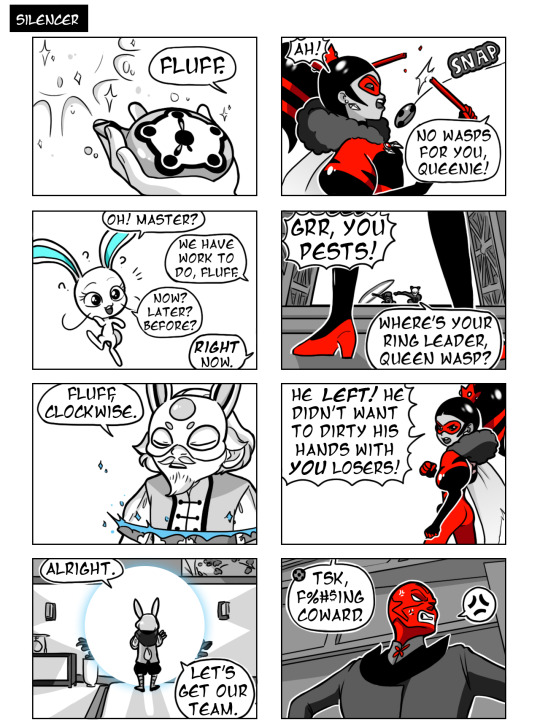
Maybe if you didn't HIDE all the damn time you wouldn't get CALLED that-!
Episode 53 Part 15
First < Previous > Next
Season 1, Season 2, Season 3, Season 4, Season 5
Ep 41, Ep 42, Ep 43, Ep 44 Ep 45, Ep 46, Ep 47, Ep 48, Intermission, Ep 49, Ep 50, Ep 51, Ep 52
No one expects Rabbit FU!
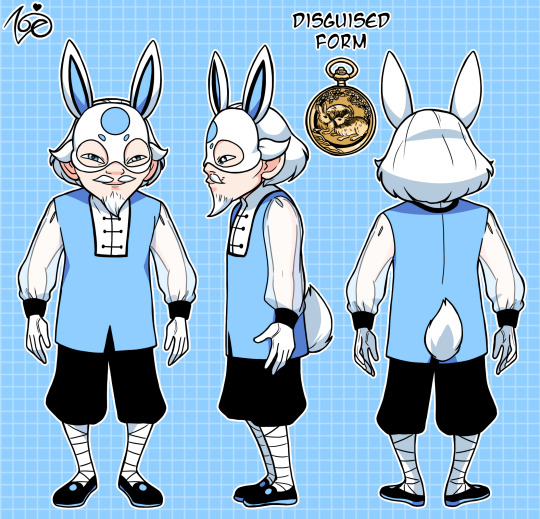
Bonus:

This bonus was just for me.
Ko-fi | Patreon
4K notes
·
View notes
Text
hello it's another merventurine comic, y'all know the drill
i feel like there's more blood than usual so i'll put it under the zigzag line just in case




2K notes
·
View notes
Text


600 notes
·
View notes
Text
NOT HOYOVERSE POSTING A PROMOTIONAL VIDEO ON THEIR BILIBILI ACCOUNT WITH MORE GOLDEN RATIO... HELLO????
This scene is my fav it's so cute
Ppl are saying that in the promotional video, the two are nicknamed 'Little Peacock' and 'Little Duck'. I'm gonna sob 😭😭
1K notes
·
View notes
Text
Yapping about why I love Aventio and what I feel makes it a great ship
(If you hate it I urge you to read this, because you don’t have to agree with me, but I want you to get where Aventio shippers are coming from at least)
I’ve just really wanted to talk about why I love Aventio because the people do not get it like I do and GODDD ITS SO GOOD WHEN DONE CORRECTLY UGHHHHH
Also this is gonna be VERY stream of consciousness I do not have a plan besides dragging you through my brain so enjoy the ride.
I guess the best place to start is the fact that Aventurine and Ratio are my two favorite characters in the game. Like even if they have no interactions with each other ever and might as well be from different pieces of media I would ship them, because I like seeing characters I like interact and the fun police cannot catch me. That’s a really shallow personal reason though and I feel like the rest I have will be able to be appreciated by others.
GOD THE DYNAMIC IS SO GOOD RAAAAAA
Two emotional constipated dumbasses circling around each other like black holes trying desperately to deny and run from their feelings when they have both fallen hard. The lack of acknowledgement of feelings on both ends is TRAGIC and it makes me want to rip my eyes out in a good way, let’s start with Ratio.
Unfortunately my glorious king Ratio has been mischaracterized to hell and back but we will get to that (and the Incorrect Reasons Why People Hate Aventio) later. Instead I will go over his actual character; a deeply insecure, intelligent man who desperately wants the rest of the galaxy to come to the realizations he has long since stumbled upon, but has been so isolated from his peers from such a young age that he’s doomed to fail in literally every social interaction he has and be misunderstood by both the audience in universe and irl (the autistic coding isn’t helping him either).
Ratio is tragically misunderstood again, both in universe and by the audience, which is why it means so much that Aventurine Gets Him. Aventurine pushes his buttons, tears down that literal cold marble facade masking the deeply silly and caring man beneath (this man bathes with rubber duckies in the privacy of his own home 😭), and that scares the shit out of Ratio. People aren’t meant to see through him, Ratio acts rude not just because he believes it’s the best way to help people, and because he believes he himself is mundane and the conclusions they come to should be their own, not his.
No, it’s also because on some level Ratio is afraid to be vulnerable around people. As much as he pretends like it doesn’t affect him, Nous’s rejection has hurt and haunted Ratio for his entire life. And I do mean his entire life, even in high school he had already set up a strict routine for himself, something commented on by his teacher, Ratio has quite literally always been striving for some sort of perfection and the fact that he cannot achieve it kills him.
Moreover, the guy just grew up way too fast, he didn’t have time to develop social skills. We see it in that afformentioned relationship with his teacher, in which they recommend Ratio (who is again in high school) to be moved up to college level stuff and transferred due to his success. He has quite literally never been able to just relax in a environment of his peers, Ratio for some reason we don’t yet know has always been dedicated to constant improvement and that leaves no room for dealing with failure.
On some level, he knows this too, that he can never be perfect. Ratio is part of the Mundanites in the Intelligenica Guild for a reason, he doesn’t just see himself as mediocre because he believes everyone is and that’s ok, but also because he looks down on himself for being too mediocre for the Genius Society, being too mediocre for Nous’s acknowledgement, being too mediocre for anything.
Which is tragic because Ratio is very accomplished and he is very smart, and his character stories aren’t even told from his pov, but rather in the style of documentaries and letters (his professor) and other works on his well acclaimed life. We don’t ever get to see how Ratio really sees himself, just the tiny cracks in his marble facade that let the real man behind the character shine through.
Because that’s what he’s playing 90% of the time, a character. Whether it be at the Herta Space Station in which his real goal was to uproot the researchers blind worship of the Genius Society, or in Penacony in which he plays up the arrogant, narcissistic scholar both people in universe and irl make him out to be, both to serve a goal bigger than himself.
Sincere moments from Ratio are RARE but god are they beautiful, his conversation from Screwllum in 1.6 and his note to Aventurine in 2.1 will forever haunt me in the best way possible. If you want to understand Ratio as a character, yes read his character stories, but just watch that damn scene with Screwllum it is phenomenal. He cares so much and is so, so bad at expressing it, he drives me nuts, Veritas Ratio the man you are.
And the thing is, it seems like he’s always been playing a character and doesn’t know where the real him ends anymore so he just sticks to the way people perceive him a lot of the time. Like as a kid he was constantly striving to be the best so he missed a lot of necessary developmental shit, and as an adult he’s a celebrity so it’s hard for him to attach himself to others anyways because society and his students will hound him for it.
And then you throw Aventurine into the mix, and oh boy does shit get interesting.
Veritas Ratio, perfect “unfeeling” Veritas Ratio and the one person who gets him well enough to push all his buttons and expose the vulnerable underbelly he thought he hid so well. On a fundamental level, Ratio understands this, which is why he doesn’t bother with the alabaster head, as pretending the real him is just as unfeeling and uncaring is easier.
So he brushes off Aventurine’s jests as if they are an insult to his very existence, he can’t look in Aventurine’s eyes when he “betrays” him because his poker face would break, he leaves as soon as he’s done talking because lingering would allow the weight of their conversations to sink in. Part of it is because for pretty much all of Penacony, up until the note Ratio gives him, Ratio is acting, trying to play up the role of the arrogant, unfeeling scholar to make Sunday buy the betrayal plan, because to Sunday this behavior is signs of a bad relationship between the two (honestly the fact that the audience also interpreted it this way makes me mad like did yall seriously not pay attention, but also happy because if even the players were fooled that means Sunday buying it is believable).
However, even if it feeds into his insecurities, Aventurine knows that false facade and loves tearing it down. It’s very telling that the second time we see Ratio really freak out (the first being at Herta Space Station) is at the suggestion that he came to narrate Aventurine’s demo not because of knowledge or respect for the show or whatever, but because he genuinely likes the guy. What makes it even better is that Aventurine is the one who suggested it, and already figured out the excuses Ratio was going to use to deny it. Ratio can fool everyone else in the galaxy, but he cannot fool Aventurine, and on a fundamental level that is what makes their dynamic work, because Ratio knows Aventurine in the exact same way.
Aventurine can shove away people who care about him, out of distrust and fear that they will leave him like his family did. He can believe he’s unloveable and a person so detestable that even the actions he performs in order to stay alive condemn him to hate himself as much as the rest of the galaxy hates him. But, Ratio doesn’t see him that way.
Aventurine doubts his intelligence, if he has really earned anything he’s done and in his voiceline about Ratio, doubting if Ratio even sees him as smart or worthy. However, Ratios voiceline about Aventurine is about how he believes Aventurine is smart and worthy, and that his doubt will be his downfall if he doesn’t come to the realization that he isn’t worthless.
Ratio knows Aventurine’s one weakness, the one thing that could stop him; himself. That’s why he gives him the note urging him to stay alive and keep on living because ultimately Aventurine will only ever fail if he gives up. And The Note Is Enough, Aventurine walks into the event horizon of a black hole, confident he can return alive on the other side because someone cares about him, BECAUSE RATIO CARES ABOUT HIM, and wants him to live on even if Aventurine doesn’t feel that way towards himself.
In the metaphorical and literal manifestation of the meaningless of the universe, in the face of overwhelming nihility, Aventurine survives because someone loves him, and with that love he’s strong enough to brave even that.
Even if they can’t admit it out loud, these two deeply, deeply care for one another and trust each other perhaps more than anyone else in the narrative. The betrayal plan would have never worked if there was not mutual trust, Ratio wouldn’t have gone to Penacony in the first place if he didn’t trust Aventurine, and Aventurine wouldn’t have asked him to come if he did not trust him. We don’t just see this trust between Aventurine and Ratio either, and Jade and Topaz both trust him with their cornerstones, but ultimately it’s Ratio who’s physically with him the whole time, risking his life alongside him for the sake of their plan.
As much as people like to ignore it, lying to the Family members, to Sunday, is extremely dangerous and puts Ratio’s life in danger as much as it does Aventurine’s. Ratio is not an irrational person, he wouldn’t have done that if he didn’t have faith Aventurine would succeed, he would not have done if he didn’t think he would return. They have absolutely faith in one another and it’s beautiful.
Aventurine’s first constellation is named “Prisoner’s Dilemma” for a reason. A social experiment in which two prisoners are captured and separated, if they sell the other one out and remain silent, they go free but the other remains in jail for 20 years. If they both sell each other out, they get a sentence of 5 years.
But if they both remain silent, trust the other, they even if they physically can’t communicate and don’t know what the other says, they get the best possible outcome, only one year in jail each. It requires a sacrifice on both ends, they both still have to go to jail, but only for a year, and only if they trust each other completely, as if the other sells them out they will be in jail for 20.
The prisoners dilemma relies completely on trust, and it’s the exact situation Aventurine and Ratio face in the Penacony quests. Aventurines doubts if Ratio’s betrayal was real or not, even if he set it up himself, and Ratio worries about Aventurines survival, if continuing this plan will end well. “You can’t expect a featherless bird to take flight” isn’t just Ratio chastising Sunday, he’s genuinely worried that this plan will put Aventurine at too much of a disadvantage to continue on.
But they both trust each other, and if just like in the Dilemma neither come out completely unscathed (although it’s much worse on Aventurine’s end), they ultimately achieve their goal.
God is it sweet and corny in the best way possible
I want to kill this fandoms perception of stoic, emotionless Ratio because once people realize he’s actually the corniest mf ever is the day I sleep easy. He makes statues of himself doing Jojo poses, he plays chess versus himself, he named himself Veritas (truth), he loves rubber duckies, he literally sits in a bathtub couch, and Aventurine breaths and he gets flustered.
Ratio so deeply silly, chronically corny, it’s a crime he needs to be locked up someone stop him.
And Aven brings that out of him. His teasing reveals the goofball trying so desperately to disguise himself as a serious scholar. Ratio is very smart of course, but that only makes his silliness better, as you watch this absolute genius of a man behave like a tsundere schoolgirl.
It’s not like Aventurine is some paragon of seriousness either, he’s the one teasing Ratio, fucking around even in a serious mission. Yeah it’s partly because he wants Sunday to think he’s incompetent, but it’s also because Aventurine genuinely is having fun, enjoying himself before the serious part of the plan kicks in, and the meantime he does that by messing with Ratio.
Their dynamic of Aventurine messing with Ratio, and Ratio trying desperately to pretend like it doesn’t affect him is as hilarious and heartwarming as it is tragic, and that dichotomy is why I love them so much. It’s fun and it hurts so so much because their interactions being this flavor of silly leaves almost no room for the sincerity they both desperately need from one another.
AND GOD I NEED IT TO HAPPEN. RATIO MENTAL BREAKDOWN SCENE PLEAASEEE LET HIS WALLS CRUMBLE PLEEEEAASEE PLEASE PELADE PLEASEEEE EPLES DOLS AAAAAAAAAAAAAAA
They’ve gotten closer and closer and closer and soon something’s gonna snap because they are so close yet so distant and if something doesn’t change the tension is just gonna boil over AND I NEED IT TO HAPPEN. I need more Ratio scenes I need more interactions with him I need him with his guard down I need him to profess out loud that he cares about Aventurine I need him to break please he needs it, it would be so good for him. It doesn’t even have to be from Aventurine, just Ratio snapping and revealing the fucking mess he is under his facade and not being rejected by the people he cares about for it is enough.
I honestly doubt it will happen in the story though, as much as I want it to. Although Aventurine’s character demo somewhat changed my mind against this, I feel like hoyo is like “ok they get the vibe between these two we can move on” and the shippers are left to extrapolate how this relationship would go beyond what it is now. As much as I want a breakdown scene for Ratio in general, it probably wouldn’t happen in a while but devs if you are reading this PLEASEEEE.
The only time Ratio ever gets slightly out of his element is with Aventurine but I need it to go further because god it would be interesting.
Well I’ve deemed that enough yapping about why I love Aventio (for now 😈) so let’s talk about why people hate the ship and why most of the reasons behind it a fucking stupid. (Massive disclaimer of course you can dislike it it’s just a lot of the “oh it’s a horrible ship and anyone who likes it sucks” shit isn’t grounded in reality in the slightest and I’m tired of the slander)
“Ratio was racist to Aventurine”
Now this is a spicy one because if this post was made in 2.0 I would 100% agree with you (during that time I shipped a non canon version of them in which that did not happen because how dare u do my boy like that hoyo). However 2.1 changed a lot and I mean a lot, and basically reframed the 2.0 quests for everyone.
Essentially, Ratio and Aventurine were both acting in that argument scene, making the things Ratio said to Aventurine not how he really sees him, and actively something Aventurine wanted him to say, so you cannot blame him for what he said. I’m not even joking or exaggerating, retrospectively it quite literally does not make sense if you view it in any other way, and honestly even with just the knowledge of 2.0 the scene doesn’t make sense if played straight, so let’s get to why.
a) Ratio and Racism do not mix fundamentally. Ratio is a person who believes that everyone deserves and education regardless of background, that it is a scholars duty to help others achieve that, and no matter who you are, you are capable of intelligence, learning and becoming the best version of yourself, and that those qualities are just limited to geniuses.
THIS AND RACISM DO NOT MIX. “Oh yeah education and improvement is possible for everyone except this specific group of people for some fucking reason!!” Like not only would this scene being serious contradict Ratios entire character, the man who believes people should not be judged for their educational background judging Aventurine for his educational background (that’s actually what the Sigonian upbringing line meant, it was mistranslated in the EN version)??!?!! Make it make sense.
Moreover, half this perception also come from the fact that hoyo made the incredible writing decision of naming Aventurines planet after a slur for Romani people, so unfortunately literally anytime its name, Sigonia, is brought up you’re essentially saying a slur. It’s much worse in the CN version, in EN it’s not obvious at all, because our version of the slur (it starts with a g and ends with a y that’s all the hints you’re getting), doesn’t look like the version of the slur that the name for Sigonia was derived from, which is partly the source of this misconception as I’m pretty certain most people assumed Ratio (and by extension Sparkle) said a slur elsewhere in the conversation when in reality them referring to Avens ethnicity/background/planet IS the slur.
Anyways terrible writing decisions aside, Ratio supposedly being racist doesn’t just contradict his core motivation, it contradicts his job. He’s a scholar, for fucks sake, and racism is inherently illogical. Mmm yes I’m gonna base my identity around finding truth for myself and I will believe government and social propaganda about specific groups of people! Very logical, very scholarly, we all clapped.
So yeah, doesn’t make sense on a character level, to the point that in 2.0 I concluded that they must be using Ratio as a plot device in that scene to deliver some of Aven’s backstory to the audience due to how OOC it was for him 😭. However I wasn’t necessarily wrong, Ratio was delivering some of Aventurines backstory to AN audience (not just us), and he was behaving OOC in the 2.0 scene, but it was on purpose.
b) The betrayal plan
Aventurine forms a plan in which him and Ratio pretend to betray one another in order to sneak the Aventurine cornerstone into the dreamscape by replacing it with the Topaz stone (red herring + black hole scene dialogue implies she and Jade are there for other reasons) and the Jade stone (perfect dupe).
Now this betrayal hinges on Sunday, their main antagonist buying it, actually believing that Ratio would betray Aventurine on a mission as important as Penacony, and it requires Sunday also buying that he is winning the whole time, that the loss of the cornerstones was somehow a fumble on Aventurine’s end rather than something he planned all along.
So, they stage the 2.0 conversation. Ratio yells at Aventurine for losing the cornerstones, something which was part of their plan the whole time. He then insults Aventurine’s background allowing Aventurine to reveal key details of his past that Sunday would not have learned otherwise, which he uses in the trial against Aventurine. Seriously, Aventurine only found out he was the last Avgin when he became a Stoneheart, do y’all think Sunday summoned that info with his mind or something during the trial (like do you guys genuinely think Sunday read his wiki or something)
Moreover, Ratio not only insults him, but portrays Aventurine as useless, disposable to the IPC because he is apparently already sentenced to death. Why does he do this? Well, so Sunday feels confident enough to do the same to Aventurine. Seriously, sentencing an IPC member, especially a high ranking one to death is a risky move, even for someone as convicted as Sunday, he would need the confidence to do so and learning Aven might already die would give him that ability.
Because well, it doesn’t matter that much if he’s already going to get disposed of in the near future. I also think the IPC plans to use Aventurine’s “death” as leverage against the family because they were pleased to hear of his death sentence according to Dr. Ratio, meaning a) he likely did not have one from them at the time, although in the past he was sentenced to death and b) even if Aventurine succeeded in getting the cornerstone his seeming loss in the rest of the conversation wasn’t actually a loss at all, getting sentenced to death/“dying” at the very least was part of the plan all along as the IPC could still use it as leverage if things went south.
Continually, Ratio treating Aventurine in the exact same sh1tty way the rest of the galaxy does perfectly slots him into the arrogant, uncaring scholar role, which Sunday knows are some of the most easily manipulated people in the galaxy, considering he tries to bribe Ratio with knowledge about Stellarons it seems he bought this idea hook line and sinker. Sunday isn’t even subtle about it either “I heard you and your companion haven’t been getting along lately” where did he hear that from? Ratio didn’t tell him, and even though we know Sunday was 100% watching the two of them on their little adventure pre-meeting him (the bird and hound statues) that scene hasn’t happened yet so where did he get that from?
Some other interesting proof for it is that the Final Victor lightcone likely depicts Aventurine trying to convince Ratio of this plan of his, the events of which must occur pre-Penacony for several reasons, the least of which being that we just never see it happen on Penacony which if you think it did we would see it. Moreover lightcones are canonically condensed memories and the Final Victor lightcone released in 2.0, meaning it’s the memory of something that happened before then.
All signs point to the 2.0 scene, the one people use to paint Aventio as toxic being staged. And I have so much more evidence for this, (Ratio would never agree to go without a plan, Aven clearly formed his pre-Penaocny, so much of the plan like Ratio opening the cornerstone box, which he can’t do up until the betrayal as it’s in Sundays possession, rely on him arriving knowing how to do so, the time discrepancies, the complete 180 in personality Ratio would have to do to go from distrusting Aventurine to putting his whole faith in him, etc), but I will reupload one of my old slideshows to elaborate more on it. Basically the one thing that people use to say it’s toxic is not true and is in fact a greater show of the trust between those two.
“The shippers are all weird and racist”
Now this one actually has some truth to it because yes there are some incredibly fucking weird Aventio shippers and I do not blame yall for disliking them.
HOWEVER, most Aventio shippers are normal and hate that shit just as much as you guys do. Like do you realize most shippers also really like these characters and have something insane called morals so they don’t automatically excuse racist fujoshi goobers just because they are making content for their favorite ship. Trust me someone doing that pisses me (and most other Aventio shippers) off significantly more than people who hate the ship. Also free Ratio from this shit man poor guy is getting mischaracterized as a slaveowner by his fans and haters 😭
And like guys, have you ever been in a fandom before, like ever? Weirdos are always gonna be weird and it’s not Aventio’s fault they are this months victims. For a fun little example of how gross other fanbases can be, one of the most popular Overwatch ships on ao3 is Genji Shimada X Hanzo Shimada WHO ARE BLOOD RELATED BROTHERS. THERES LIKE 300+ FICS OF IT, SHIMADACEST IS LITERALLY A TAG ON THERE. I WAS IN THE TRENCHES SEARCHING FOR GENJI HANZO ANGST FICS (Hanzo killed Genji it’s complicated doomed siblings will always get me) AND HAVING TO COMB THROUGH THOSE ABOMINATIONS IN THE PROCESS.
Like please I’m relatively new to fandom culture but yall cannot be acting like this is weird for fans to do, it’s weirdo behavior but it is not unique to the HSR fandom or even Aventio. And even if understandably this makes you not like the ship, don’t paint the people who enjoy it as being the people who do this kinda sh1t. It’s not our fault peak gets tainted by miserable creatures ok, let normal ppl have their harmless fun and stop lumping people together into a monolith.
?????
Well that’s it that’s all the “valid” reasons people have for hating Aventio, at least the ones I can remember. Everything else is just personal opinion and not at all an objective reason.
“They’re so sibling coded!”
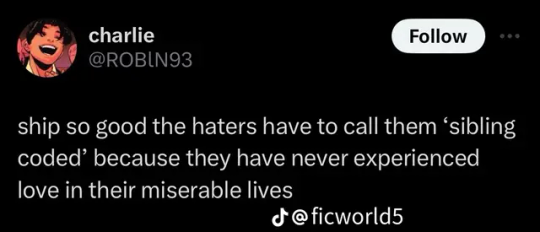
Anyways again obviously you can still dislike it not everything is for everyone, I really just wanted to make this post to demonstrate why I and many others like it, and why the reasons people use to say it’s problematic are incorrect. Feel free to call it mid, block it whatever I don’t care, just don’t harass shippers for having some harmless fun, because the characters aren’t real but the people who like them are and in doing so you are really just being a jerk for no reason. If you somehow hate Aventio and read this the whole way through I congratulate you on your ability to actually listen to other people, and regardless of whether you changed your mind or not I respect you for doing so anyways. Thanks for reading and I would love to hear your thoughts.
#Hsr#honkai star rail#dr ratio#aventurine#aventio#raturine#ratiorine#golden ratio#tags for reach bc I need ppl to read this sorry#The next time I read an Aventio fic w surprise dubcon I’m gonna die#Aventio is peak we all cheered#aventurine hsr#dr ratio hsr
272 notes
·
View notes
Text
Happy Wednesday y’all
Daily reminder that Sonic and Tails are BROTHERS and BROTHERS only 😊🔪
204 notes
·
View notes
Text
maybe I am a slut for this trope but i really wish felix and marinette kept dancing after she figured out it was him and not adrien. each one keeps trying to pull away only to be spun around or dipped by the other (furiously) because you aren’t getting away that easy. (what did you do with adrien? the miraculous?) (and what business do you have with those, marinette?)
1K notes
·
View notes
Text
Xie Lian wants to be banished again 🤣
612 notes
·
View notes
